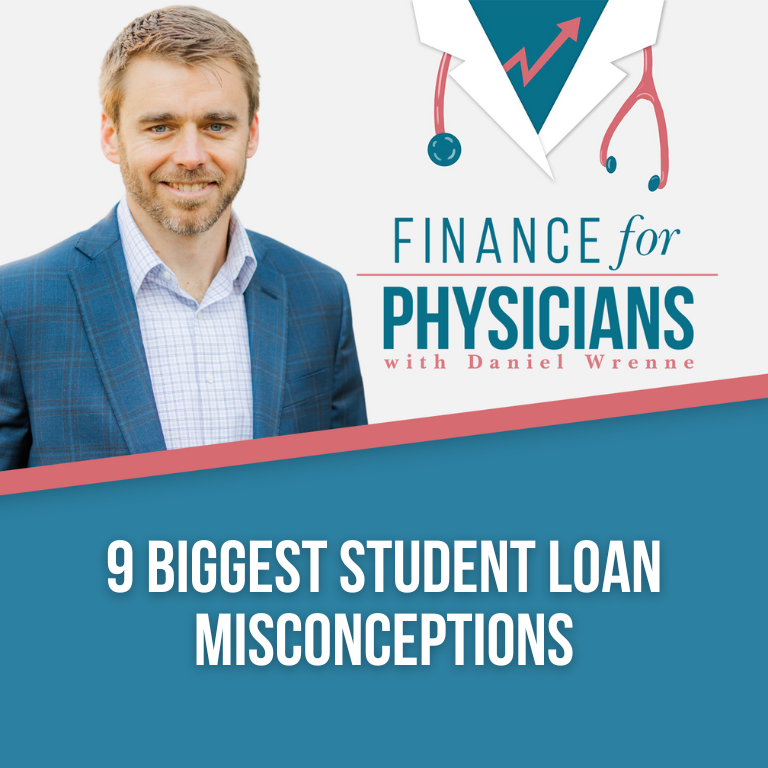They say knowledge is power — and that seems to be especially true with student loans. As complex as they have become, it’s no surprise that there is a lot of misinformation floating around out there. And what you don’t know (or don’t understand) can definitely hurt you. Here are some of the most common misconceptions we come across:
#1: Your loans don’t accrue interest during school
This is true if you have certain subsidized or Perkins loans. But this is NOT the case for unsubsidized loans, which happen to be a much larger percentage of the loans we see.
#2 You cannot begin repayment while in-school
Most people don’t even consider this as an option. So before we discuss the misconception, let’s talk about why you might want to enter repayment while in-school. Nowadays, repayment plans are income based. If you don’t have any income, your loan payment is $0/mo. Revised Pay As You Earn “RePAYE” is one of those income based options. And it comes with a very generous interest subsidy. Basically, 50-100% of unpaid interest gets forgiven. So if your loans are accruing interest during school (see misconception #1), this 50-100% interest reduction could be huge.
This isn’t available for all loan types. It’s only possible for loans that are in deferment status. For a graduate student, this might be Direct Plus loans and loans taken out during undergraduate education.
#3 You cannot verify income outside of the normal 1-year anniversary
You can actually verify income anytime. But it must be for one of two reasons: to change repayment plans or if your income or family size changed. Maybe your spouse lost her job. Maybe you’re expecting triplets (all things being equal, more dependents equal lower payments). Or maybe you’re now unemployed. These are all valid potential opportunities to recertify income outside of your normal 1 year window. And when you do this non-traditional income certification, it typically locks in a new payment for another 12 months.
#4 Your spouse’s student loans have no impact on your PSLF
If your spouse is in RePAYE, their payment will always incorporate the entire household loan balance and income. If you file taxes jointly and your spouse is in Pay As You Earn “PAYE” or Income Based Repayment “IBR”, the same is true. What does this translate to? If both spouses have Federal loans with payments based on the “household” and one spouse refinances to private loans, the spouse staying in the Federal system will now pay the entire household payment. This can have a dramatic and potentially negative impact on the PSLF-spouse that stays in the federal system. And it’s often overlooked.
#5 Retirement plan contributions are unrelated to student loans
Pre-tax plan contributions like Traditional 401k, 403b and 457b will lower your AGI. Lower AGI equates to lower future student loan payments. If you’re going for PSLF, reduced payments equate to money straight in your pocket. What is the effect of this? In our experience, it ranges from 0% to 25% for married borrowers and 0% to 15% for single borrowers. In many cases, one spouse’s PSLF savings % is higher than the others, so it can be beneficial to shift pre-tax income to that spouse with the bigger savings factor.
#6 Pay As You Earn “PAYE” repayment plan is always best to select when going for PSLF
This is true most of the time. But not always. The only way you can know for sure is to run projections for all the possible options and identify the lowest cost route.
#7 Your tax and financial advisors understand student loans
I know lots of financial and tax advisors and can confirm the majority know just enough about student loans to be dangerous. Ask your advisor how many people they’ve worked with like you that have student loans.
#8 PSLF is only for those in rural underserved areas
There is another forgiveness program that is tied to working in rural underserved areas and some people get it confused with PSLF. The problem is that the qualification requirements are totally different. PSLF is for people that have qualified loans and make qualified payments (120 of them) while working for qualified employers (501c3, government, and some non-501c3 non profits). And is in no way tied to working in an underserved area.
#9 PSLF is not worth pursuing for high income earners
High income alone definitely doesn’t mitigate the benefits of PSLF. I’ve worked with many people that have mid to upper six figure incomes that are in position to benefit massively from PSLF.
Fortunately, you don’t have to navigate the complicated world of student loans alone. We can help. Feel free to schedule a no cost consult with someone on our team to see if we might be a good fit.
